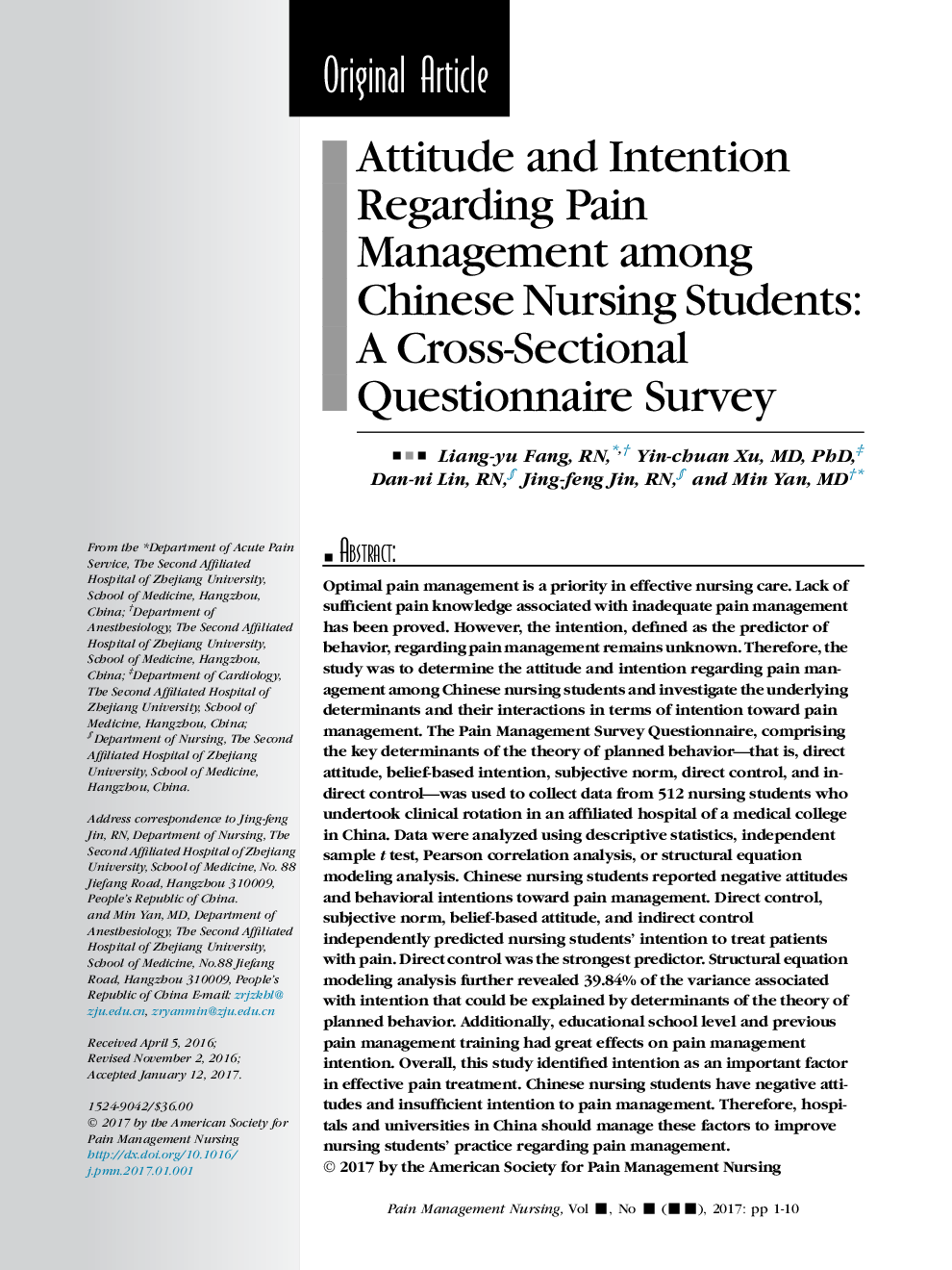ترجمه فارسی عنوان مقاله
نگرش و نگرش در مورد مدیریت درد در میان دانشجویان پرستاری چینی: بررسی پرسشنامه های مقطعی
عنوان انگلیسی
Attitude and Intention Regarding Pain Management among Chinese Nursing Students: A Cross-Sectional Questionnaire Survey
| کد مقاله | سال انتشار | تعداد صفحات مقاله انگلیسی |
|---|---|---|
| 160854 | 2017 | 10 صفحه PDF |
منبع

Publisher : Elsevier - Science Direct (الزویر - ساینس دایرکت)
Journal : Pain Management Nursing, Volume 18, Issue 4, August 2017, Pages 250-259

